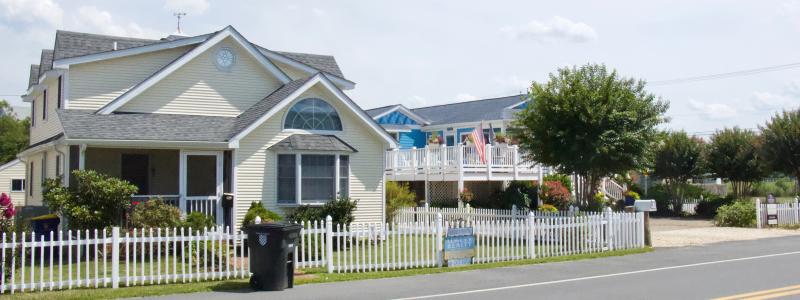Following some last-minute fine-tuning and touch-ups, an ordinance has been completed by the Lewes Short-Term Rental Ad Hoc Committee.
Councilwoman Carolyn Jones, the committee’s chair, helped to guide members throughout the summer in drafting Lewes’ first official guidance for the evolving landscape of rentals. Jones invited industry professionals, property owners and residents to engage in conversations with her committee to extract as much information from as many sources as possible. The work required patience, understanding and cooperation all around, ultimately completing in time for the city to begin putting everything on the books for 2023.
By a vote of 3-1, with member Tonya Flickinger not participating, committee members referred their code amendment to allow for short-term rentals, a fee schedule and a rental ordinance to mayor and city council. Don Long was the lone no vote and made multiple attempts throughout the summer to express his reasons for disapproval.
Long had questions about the quality of life, character of the community and viability of an increasingly vacant city. The short- and long-term rental annual license fee schedule, which passed at a rate of $200 for both, was an area Long wanted to use to incentivize long-term rentals and host rentals. Ultimately, a price difference of $15 reduction for long-term rentals was not enough to satisfy Long and others, which is why a flat rate of $200 passed.
Host rentals, something clearly defined by the rental services, was an area Long believed could have remained at the current $83 rate. Long clearly stated the definition of a host rental, but was often derailed by confusion from committee members and irrelevant questioning surrounding his proposal. Consultant Jeffrey Goodman clarified that there is a difference between an owner-occupied primary residence and a host residence, but Long never wavered from his expectations and definition of a host rental. A host rental, according to Goodman, would need more requirements because of its nature.
Officials wondered how they could verify a rental is hosted or merely owner-occupied. Long said host rentals, provided someone is on site, would cure a lot of the quality-of-life issues because a local member of the community is physically there. A reduction in the license fee, Long said, would be warranted because some of the taxing issues would be resolved by the host – such as noise complaints, municipal receptacles being left out and various safety concerns. Long’s request to add the terms of owner-occupied and host rentals to the definition was denied.
Inspections were originally proposed to be carried out by the building department, but committee members believed it would not be logistically possible to inspect each property applying for a rental license. The language of the ordinance was modified to grant permission to the city from the property owner to perform inspections as it sees fit. Property owners would be subject to initial inspections and investigative inspections when they obtain a license. Initial inspections would be scheduled and planned, while investigative inspections would be follow-ups to safety complaints.
Committee members increased the fines for operational and license violations in the final draft. The first strike is a written warning, but the second violation is a $250 fine and the third is $500. Revocation occurs after the third violation, and it is believed the revocation penalty will garner the most compliance. For someone profiting thousands of dollars per week, the monetary implications are not as much of a deterrent as the potential loss of income, the committee believes. The fine and fee schedule must be approved by mayor and city council before becoming enforceable.
Committee members believed useful information and rules concerning safety should apply to all rentals. A brief argument was made that long-term renters become ingrained in the community, but it was decided that providing the information initially could help them get started properly. Long-term rentals are required to provide the same information as short-term rentals.
The ordinance will be presented to mayor and city council Monday, Sept. 12, during their regular monthly meeting. A link to the agenda and meeting can be found at lewes.civicweb.net.
Aaron Mushrush joined the sports team in Summer 2023 to help cover the emerging youth athletics scene in the Cape Region. After lettering in soccer and lacrosse at Sussex Tech, he played lacrosse at Division III Eastern University in St. David's, PA. Aaron coached lacrosse at Sussex Tech in 2009 and 2011. Post-collegiately, Mush played in the Eastern Shore Summer Lacrosse League for Blue Bird Tavern and Saltwater Lacrosse. He competed in several tournaments for the Shamrocks Lacrosse Club, which blossomed into the Maryland Lacrosse League (MDLL). Aaron interned at the Coastal Point before becoming assistant director at WMDT-TV 47 ABC in 2017 and eventually assignment editor in 2018.





















































